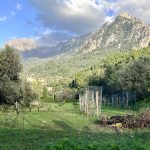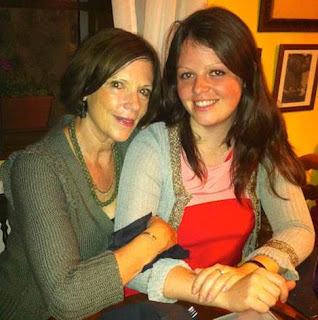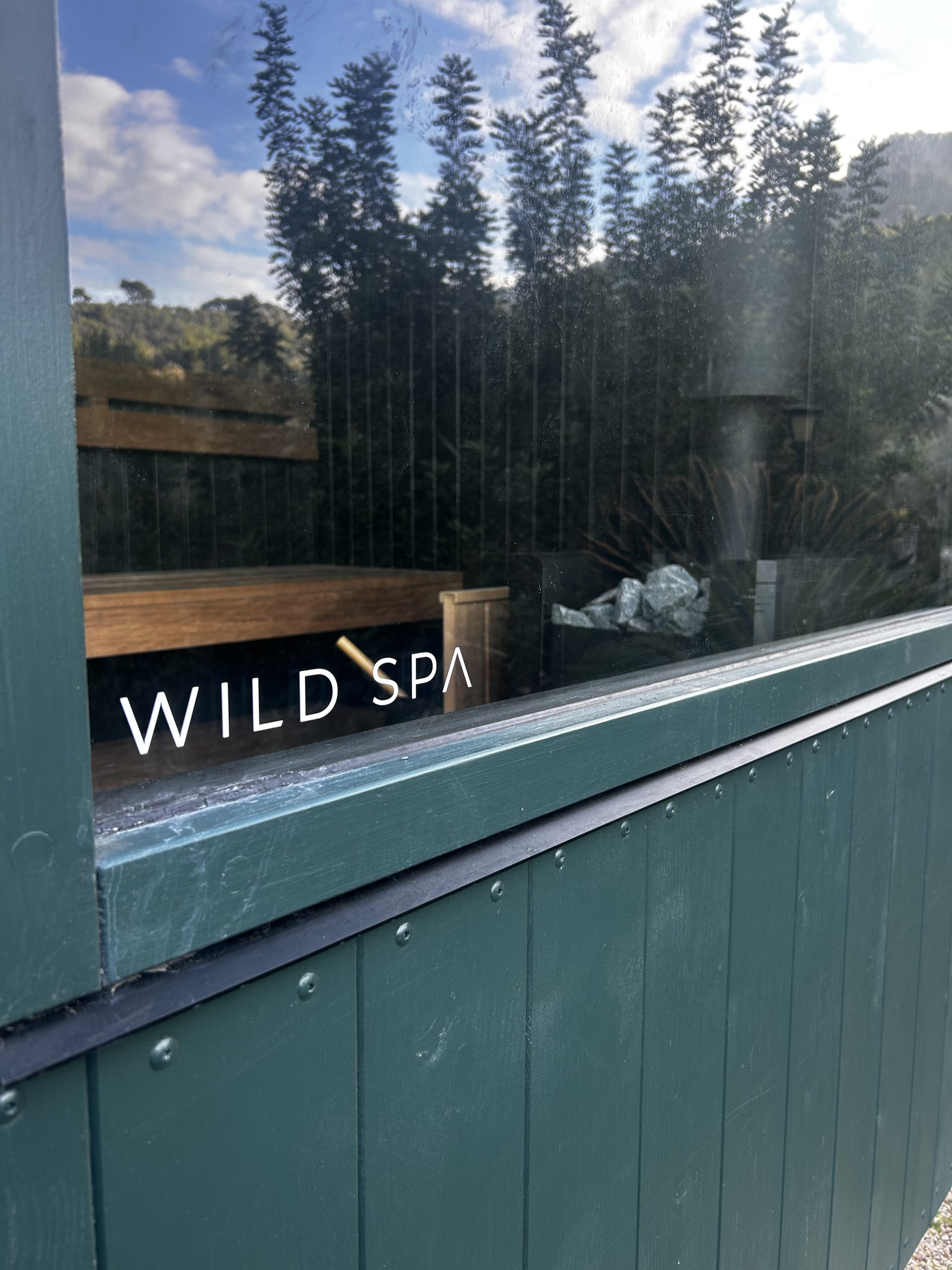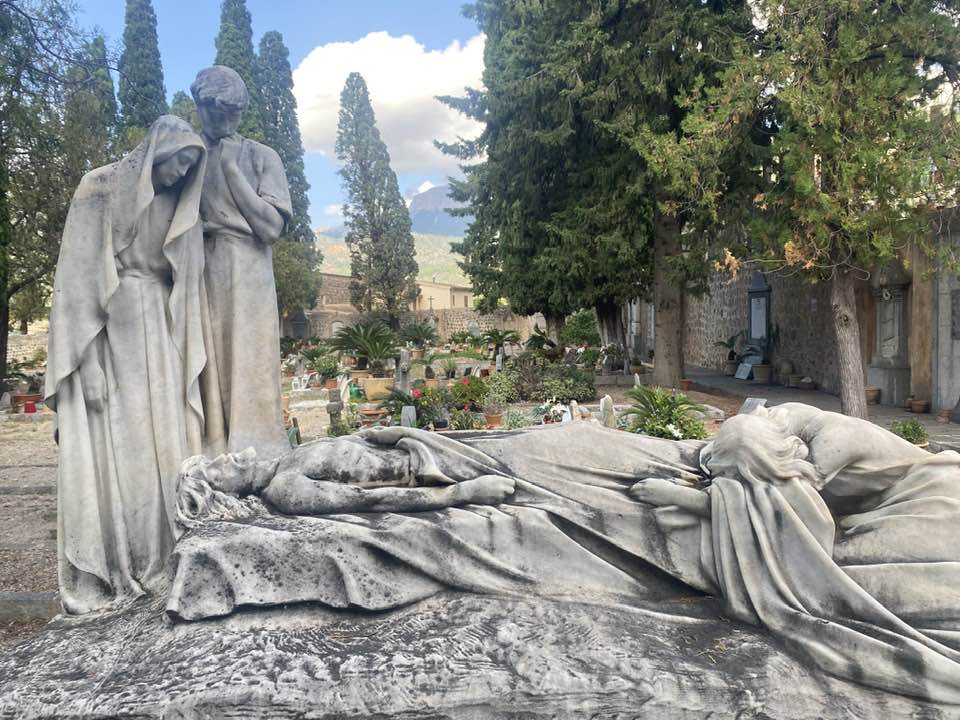Sarah completes Sue Lloyd Roberts important new book
WAR ON WOMEN
This article was published in the Majorca Daily Bulletin on Sunday 21st August 2016
By Shirley Roberts
Sarah Morris is the beloved daughter of Sue Lloyd Roberts who was my neighbour from Fornalutx. Sue died last October after fighting so hard to survive leukemia so that she could continue her life’s work railing against injustice to all, but in particular to women. Sarah is a journalist and she proudly took on the work of finishing her Mum’s last book ‘War on Women’ which is now published. Sarah is immensely proud of all that her mother achieved and the work that she did and she knew that she needed to finish the book to let her mothers’ anger ring round the world – even after her death.
Sue was very angry at the treatment worldwide of women and angrier still at the collusion by other women in this treatment. The idea that the cutters in female genital mutilation were women was beyond her comprehension. It was as if there was an unspoken pact with women that said that if they experienced awful things as part of their tradition that they would happily go on to do the same to their daughters. The Nuns of the Magdalene Laundries in Ireland had a special place in the horror stories for Sue as there were not only women involved in unspeakable cruelty but the church as well.
Sarah told me her story this week and how she came to finish this book as an opportunity to give her Mum an unfettered voice and this is what she said –
‘Shortly after Mum died in October 2015 I took a month off work to finish her book, ‘The War on Women’. It was really difficult, particularly so soon after it had happened. I was completely knocked sideways by her death and would often lose whole days of writing to grief.
Fortunately, she had written most of it. Fearing the worst she worked tirelessly from her hospital room in between treatments to get it all down. All that remained for me to write was the introduction and the final chapter on the gender pay gap in the UK.
She always wanted to write some kind of book about her experiences as a journalist, the idea for this came when she was invited to speak at the One Billion Rising rally in Trafalgar Square in London. It’s an annual event held to draw attention to violence against women around the world. She was a human rights correspondent so the majority of her stories were about persecuted minorities. She said it just suddenly dawned on her how crazy it is that 51 per cent of the world’s population are women and she wondered if women are just doomed to be treated like another persecuted minority. Then looking back at all the stories she’d done she realised there was more often than not some element of misogyny or brutality against women so it became a theme that she could work with for a book.
Each chapter explores a different so-called ‘war on women’ from female genital mutilation in the Gambia to India’s child brides via honour killings in both Pakistan and in the UK. They all start with the personal story of one woman and then Mum pans out to look at the issue more broadly. It’s full of amazing stories of incredible women fighting against oppression and violence. For example, the chapter on FGM or female genital mutilation tells the story of Maimouna who’s mother and grandmother and generations back have been the village cutters, in charge of making sure all the five year olds have their clitorises cut often leaving them with a lifetime of agony. She is destined to be the next cutter. She finds herself helping her mother hold down her own daughter who’s blindfolded so can’t see that its her mother and as her daughter screams out in pain something in her tells her this is just wrong and she decides she won’t be the next cutter. She escapes to England claiming asylum, saying if she goes back she’ll be killed for refusing to cut. She leaves behind her five children and everything she knows in order to stand up for what she thinks is right. She’s still in the UK unable to see her children. Her case has so far been thrown out and she’s appealing the decision while waiting to be deported.
FGM was an issue Mum felt very strongly about and she was responsible for bringing it to the attention of UK audiences, many of whom before she started reporting on it didn’t even know what it was. Because of her, it became an issue debated in parliament and her reports changed legislation to protect young girls in the UK from being mutilated.
Mum had a strong sense of justice and she was very angry at the way so many women are treated. Often her BBC television reports were constrained by BBC regulations to be impartial and balanced but in the book she really lets loose on how she feels. Something that continually drove her mad was being told time and time again that abuse and even murder was excusable in the name of tradition. She said she wanted to scream when she was interviewing the father of an honour killings victim who explained it away by saying it was part of the culture and tradition of Pakistan. Mum was very clear that this could and should not be an excuse for what was simply murder.
As a journalist Mum was brilliant at giving a voice to people who would otherwise not have one. She had a gift for getting people to open up to her. Women who’d been through unimaginable ordeals would open up to her and want her to tell their story. As Aung San Suu Kyi said of her ‘she exemplified my belief that the best journalists are also the nicest.’
Sue was a human rights journalist and writer and she was also a Hotelier of Fornalutx. She loved her place in our mountains and it was a family holiday in Fornalutx at age 15 that prepared Sue Lloyd Roberts for freedom and adventure. She didn’t register very much of the beauty that surrounded her as she was too busy having fun. The restrictive, proper boarding school of Cheltenham was her lot in life just then and a school holiday in the mountains meant just one thing – freedom. Fiesta nights in the square with live music and dancing, kids flirting with each other and hiding from their parents in the back lanes and maze that is Fornalutx streets.
The gentle, comparative sophistication of Soller and the delights of the beach became filed in her memory box under the title ‘teenage holiday in Majorca’. The one event that is easy to recall was the first delicious kiss given by a local Don Juan (who still lives in the village). Another memory of that holiday was being present at Robert Graves 70th birthday party in Deya. A stepmother with literary aspirations inveigled a family invitation to that special event and Sue was encouraged to be polite and mingle. She remembers asking Robert Graves what his proudest memories were – He replied ‘translating Winnie the Pooh into Latin’. These were her recollections of Fornalutx and the Hidden Valley until life brought her back for a second visit some forty years later.
Sue’s Welsh surname came from Caernarvon in North Wales. This was the birthplace of her orthopedic surgeon father who relocated to London and created a very English life for his children. The love of mountains and beautiful scenery was born there and to climb a mountain was a passion in her life. In fact, she climbed both sides of the Himalayas and Kilimanjaro, alone and in the company of Sarah and her brother. These are children who have inherited her love for the skill and solitude of the climb.
As a female graduate trainee with ITN and a move to the BBC in 1990 her opportunities were limited to start with. A spell as the Royal Reporter and general journalism took her into the three horse stable. Always working as part of a three-man crew her role was often that as a typecast woman and her crew’s glorified nanny.
She told me of a hard world in the 1970’s – opportunities for women were there but family life paid a very high price while careers were carved out of essentially a mans world. She remembers her children’s childhoods with huge regret that often her job had to come first. She was a single parent in this period of her life so suffered the double guilt for the amount of time she was able to spend with them. Holiday times and climbing were the cement that bound them together and these days they enjoy each others company enormously.
Human Rights with all the issues of the day set the course for the next stage of her career. There was one invention that changed everything for her and set her on course to be an undercover human rights reporter. In 1988 Sony produced the machine that enabled her to operate alone with a Sony Domestic Camera and this was the revolution that news and Sue Lloyd Roberts were waiting for. Prior to this machine Sue was one of the ‘taxi rank’ reporters which meant she never knew where she would be that night. This was a huge challenge to the life of a single mother of two which was why the advent of the small camera was both personally and professionally liberating. She could now pursue human rights issues in countries which forbade official three man crews, undercover using a small camera. Her material was therefore exclusive and she could go, more or less, where she wanted when she wanted – ideal if you are trying to make it to the School Sports Day!
The coded instructions and stealth of these operations were more James Bond than BBC. Stories of arrests, strip searches at borders and near misses are enough to cause the adrenalin to flow just listening to them. The border guards taken in by stories of her being a hapless academic researching her next thesis was often how she got into the most unlikely countries. Her intellectual approach bored the guards into submission and they were happy to send her on her way.
Sue covered stories in this way in Zimbabwe, Africa, Asia, India, China, Russia, Beirut, Bosnia, Romania, Korea, Argentina, Peru, Burma and Tibet amongst other countries and continents. She was blacklisted in Burma after filming a gem trader agreeing to send the precious jewels anywhere she wanted in the world. There are sanctions against gem trade in Burma because of their history of repression and record on human right abuses. Her one-person covert operation had huge repercussions and resulted in her being lucky to get out of the country in one piece. To talk to the people affected by the regimes in which they live is where Sue’s skill was foremost. She knew how to listen and pull out the bits of information that would have the desired effect. She wanted the world to listen to all the terrible things that she proved go on in our world today. She was motivated by a desire to bring the atrocities into the open so that political and personal will can change the lot for the countries and people involved.
All this came at a great personal price, she was deeply affected by all she heard and decided very early on in her career that she had to pay something back to all the countries she worked in. She knew that she made her living out of other peoples’ hardship, conditions and abuses. To reconcile this was very important to her and she always donated 10% of her income to charities in the countries she worked in that financial year.
Life changed in 2002 when Sue couldn’t remain detached from the stories she heard on a daily basis and started crying. Family life was tricky as her daughter was unwell and all in all this was a watershed moment. Now married to Nick Guthrie – a fellow journalist they took a holiday in Fornalutx at the house of Nick’s uncle. Sue remembered with such pleasure her introduction to the valley when she was 15 and now here it was again as a re introduction by her beloved husband.
The Soller Valley weaved its magic spell and the Guthrie’s decided to give up news and Sue’s life as a spy for a while and run a small hotel in Fornalutx. The peace and tranquility of the Valley, the mountain walks and a gentle life was what her soul was yearning. In 2003 they sold everything in the UK apart from a small North London apartment and put all their money into Can Reus – a nine bedroomed hotel with the most stunning view of the mountains and the valley. They inherited three Romanian staff and set about learning a new trade and making all the mistakes that even clever people do when they make such a life changing move. This was a different world but the conversational skills used to such effect in Bosnia or Tibet were just as useful here in Majorca. The guests that came for walking and relaxation holidays opened up to Sue on the mountain walks she led. She learnt so much about the lives of hard working people in the UK who came to Fornalutx for the same reasons that she did. She returned to her travels and work after this but came back regularly to Fornalutx to put her apron on and charm her guests.
.
.
The life of a hotelier in Fornalutx is a different world but challenge and controversy are never far from the surface. Would it surprise you to know that not so long ago Sue was fined 350€ by the Guardia Civil for insubordination? A taxi arrived bringing guests to her hotel in the middle of the night from the airport. Sue stood at the door to welcome them and couldn’t believe the price that the driver was proposing to charge. She sent him away with an imperious ‘Don’t be ridiculous’ resounding in his ears. The police returned to the hotel with the irate taxi driver and a noisy confrontation took place. Sue says that she has a deep respect for law and order and the practitioners but she is always going to have her say and stand her ground. End result of this one was a few weeks later the fine arrived in the post for ‘gross insubordination’.
Making fruit salad for breakfast and discussing the price of toilet cleaner was a daily routine and sometimes added to that was the planning stage for another clandestine trip. She laughed with wry amusement when she thought of the guests who have overheard her on the very open hotel reception phone arranging alternative passports and disguises. The local printer in Soller was quite used to her turning up and asking for business cards to be printed with fictitious names and details to give credence to her other lives. The business card she used for the Burma trip where she posed as an international gems dealer was produced in down town Soller.
Those Fornalutx days are sadly over for Sue and those of us who knew her still can’t believe it. For Sarah working so closely with her mother in the finalising of this book has been a cathartic journey. She is grateful to her wonderful mum who filled their lives with mountain walks and Tibetan monks coming to stay. She had a blessed childhood and unique memories that we may one day read in a book of her own. For now, the energy is on obtaining a copy of The War on Women, published by Schuster and Schuster and available on Amazon and in all good bookshops.
Thank you Sarah for completing Sue’s work and making this important work available to us all.










